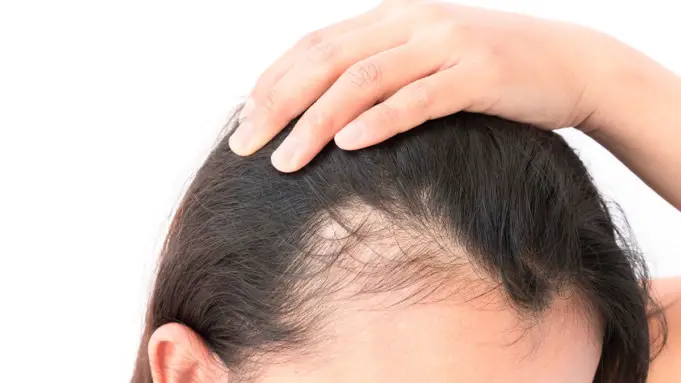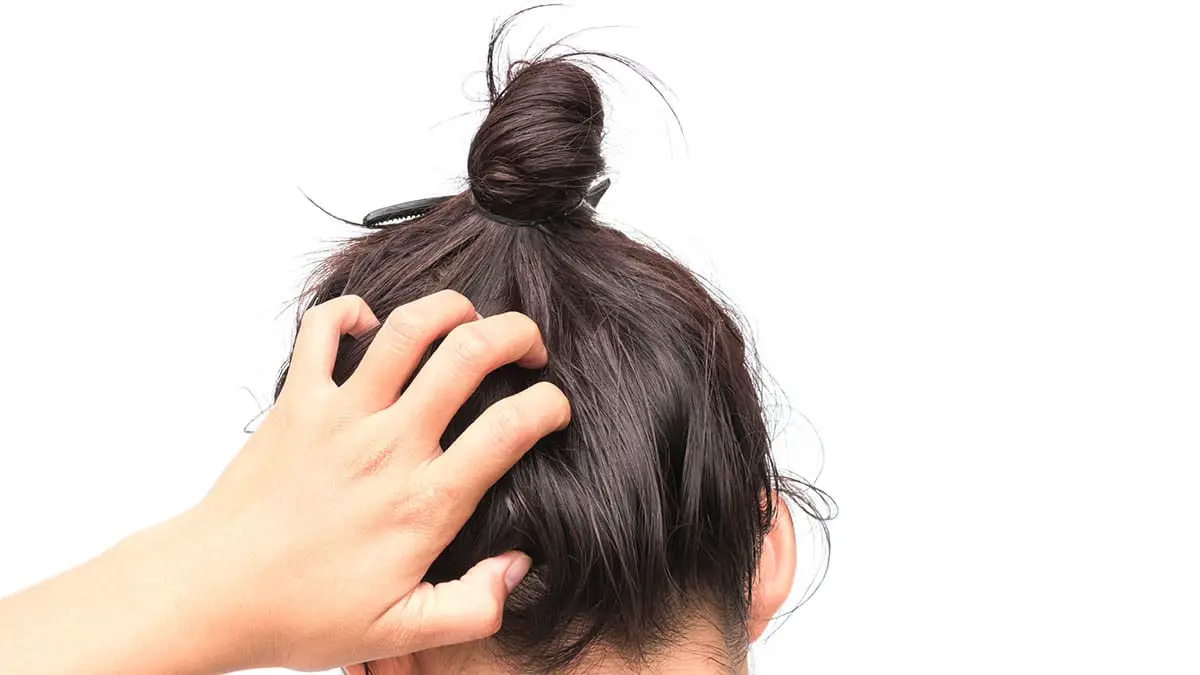Itchy scalp is also known as scalp pruritus. It is a common problem that causes frequent scratching and discomfort.
Sometimes an itchy scalp comes with clear signs such as flaking skin. But it can also occur without any skin reaction or changes.
An itchy scalp does not really indicate anything too serious but it could also be a symptom of an underlying situation.
Causes of Itchy Scalp
There are different causes of itchy scalp. Some of them include;
Dandruff
These are white dry flakes of dead skin on your hair and scalp from excessive skin production.
Also known as seborrheic dermatitis, it is the most common cause of the itchy scalp. It is called crib cap or cradle cap in infants.
This type of dermatitis most times occurs in areas of oil secreting glands which includes the face and the scalp.
When the glands are inflamed, you can experience;
- Flaking
- White or yellow scales
- Reddened skin
Though doctors haven’t been able to pinpoint the exact causes of dandruff, some potential causes include;
- Hormonal stress or fluctuations
- Seasonal changes
- Yeast overgrowth on the skin
Other Causes
Itchiness of the scalp can simply be as a result of a sensitive scalp but it could also be caused by an underlying medical condition.
Itchy scalp can also be caused by
- Head lice (contagious insect that live in the hair and cause itching)
- Migraine headache
- Tinea (fungal infection of the skin that causes red, flaky patches and itching)
- Scalp psoriasis– a chronic condition that causes raised red scaly areas of the skin (also called plaque)
- Discold lupus
- Dry scalp
- Allergic reaction to medication
- Scarring alopecia
- Fungus
- Sweat and dirt
- Sunburn
- Frequent heat styling that causes hot comb hair loss
- Ringworm
- Folliculitis
- Scabies
- Anxiety disorder
- Irritation as result of something your scalp came in contact with like a new shampoo
- Diabetes
- Herpes zoster (shingles)
Symptoms of an Itchy Scalp
An itchy scalp can be painful or tingly. You can feel pain or relief when you scratch or itch your scalp
Symptoms that come with scratching your scalp include:
- Scalp swelling
- Irritated skin
- Low grade fever
- Sores on the scalp
- Redness
- Patches or scales on the scalp
- Pus-filled sores
- Dry skin
- Bald patches
Seeking Help for an Itchy Scalp
Normally itchiness is supposed to go away in a few days. If it does not go away and it comes with sores, pain, intense itching or hair loss then you should see your doctor.
Itchy scalp from a result of fungal infection, lice and some other conditions will not go away without medical treatment.
Some doctors can be able to diagnose the cause of your itchy scalp through a review of your medical history or with a careful examination.
In addition to a physical exam, the doctor may also take a scraping of your scalp. In a lab, skin cells can also be tested for the presence of lice, bacteria and fungi.
Treatment for Itchy Skin
Itchy scalp can be treated depending on the cause. For example, regular hair washing with special topical agents can be used to treat dandruff.
Each scalp medication works differently, such as killing fungus or reducing oil on the scalp. Some of the medication used to treat dandruff are
- Anti dandruff shampoo,
- Pyrithione zinc,
- Topical steroids,
- Keratolytics such as salicylic acid or coal tar
- Antifungal creams.
Your itchy scalp might be as result of an allergic reaction. If that’s the cause, then you should refrain from using the product that caused the reaction and also speak with your healthcare provider if the reaction is severe.
Head lice can be treated by using a medicine that kills lice or washing your hair with a pediculicide. The medication can kill active lice while a fine tooth comb can remove lice eggs.
Also, people who live in close contact with infected persons need to take some preventive measures.
All beddings, cloths and towels that came in contact with the infected person must be washed or dry cleaned in temperatures higher than 130°F.
Itchy scalp still has a wide variety of causes not included in this article. The best way to find out the cause of your itchy scalp is to have a medical practitioner take a look at your scalp.
Prevention of the Itchy Scalp
You should see your doctor if you get an itchy scalp often, to know what causes it. You can reduce the risk of having itchy scalp by washing your hair regularly to help eradicate built up oils.
You can wash your hair in warm – not too hot – water to avoid drying out and irritating the scalp. Avoid using products that contain any of the following to reduce allergic reactions
- Fragrances
- Chemicals
- Dye
Prevent the spreading of lice by reducing contact with infect people. This includes refraining from sharing;
- Towels
- Helmets
- Pillow cases
- Combs
- Hat
- Brushes
References;
- Itchy scalp: causes, treatment, and prevention; Healthline
- Itchy scalp; HealthDirect













